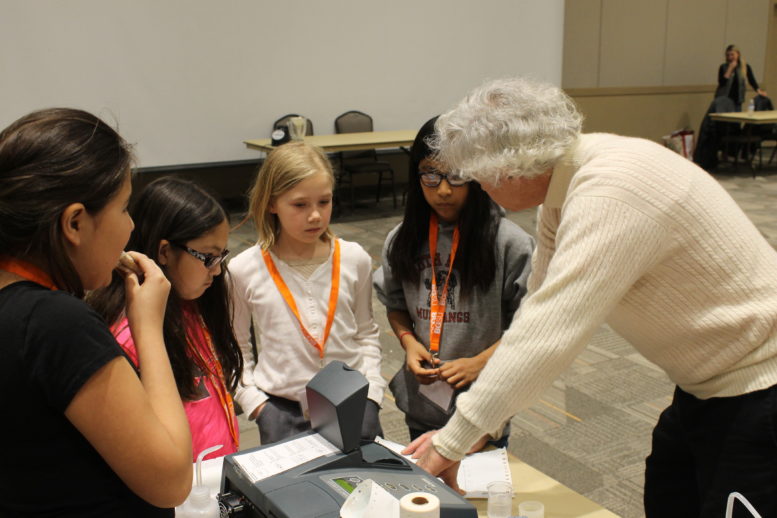By DAVID DUPONT
BG Independent News
Maybe it takes something creepy like a parasite that controls its host to hook children on science.
That’s what Dr. Kelly Weinersmith, of Rice University, hopes when she presents “When Sci-Fi Comes to Life: Parasites that Control Host Behavior” at Kids’ Tech University @BGSU.
The program for children, 9-12, will be presented at Bowling Green State University in four Saturday sessions, starting Feb. 3 and continuing through March 24, when Weinersmith will present.
This is a way, she said, to show “students there’s all kinds of crazy stuff in nature, mind blowing stuff, and you can spend a lifetime asking interesting questions and let them know how much fun it is to be a scientist.”
Kids’ Tech is open to 150 students. The cost is $90. For more information visit http://kidstechuniversity-bgsu.vbi.vt.edu/
“We want the children to feel that the study of science is something that they should consider, and that they can be comfortable in a university environment,” said Dr. Paul Morris, who adopted the program from one developed at Virginia Tech.
The daylong sessions begin with presentations by the guest scientists in the morning. In the afternoon, the students assisted by BGSU graduate and undergraduate students participate in hands-on, activities that relate to the morning presentation.
Working with the university students in the campus labs and classrooms gives them a feel for life as a university science student, Morris said. “We are able to provide them with a true university experience, by directly introducing them to distinguished scientists that they can relate to talking about their work. … The speakers in our program, are chosen for their ability to reach this audience, and their effectiveness is seen in the sea of hands that are raised during their morning presentations.”
Weinersmith, who has her bachelor and master degrees from BGSU, said that talking about parasites with elements that could come from a science fiction film helps engage the students. “It gets them excited and interested in how the brain and immune system can help influence behavior.”
Weinersmith said a workshop in forensics science at the University of Toledo pushed her toward studying biology at BGSU. At first, she was considering going to medical school, but a course in Population-Community Ecology taught by Dr. Jeffrey Miner steered her into her current direction.
Dr. Anita Simic, assistant professor in the School of Earth, Environment and Society, will present “Earth Through a Drone’s Eye,” on Feb. 17.
An expert on remote sensing, she’s using drone technology to introduce her field. Satellites, she said, seem too abstract. “You have to start with something simple to reach them.”
Simic has a passion for teaching about her field. She’s an organizer of SPLIT Remote Sensing seminars for professionals. She’s also developed summer workshops using a “cascading” approach to teaching: She teaches her graduate students who teach undergraduates who teach high school students.
Now Kids’ Tech U will give her a chance to reach elementary age students. “I think children need to be even younger than high school to start thinking about STEM and remote sensing.”
When she was young, her father encouraged her love of math, which was paired with a love of music – she studied piano into her teens.
That love of math led her to engineering, which in turn led to remote sensing.
“When they’re really young if you start teaching math and the beauty of science it will be imbedded in them when they get older.”
Other workshops scheduled are:
Feb. 3 — “Global Change Microbiology: The Microscopic Organisms that Fuel Our Planet’s Global Carbon Cycle,” with Dr. Melissa Duhaime, assistant professor of ecology and evolutionary biology, University of Michigan.
March 17 — “Plants Are What They Eat, Too! The Science of Plant Nutrient Uptake and Assimilation,” with Dr. Terri Long, associate professor of plant and microbial biology, North Carolina State University.

